#loop ties
Explore tagged Tumblr posts
Text
The Importance of Wire Binding and Construction Rings

Binding wire, an often-overlooked hero, holds together the intricate network of reinforcement that goes into every strong concrete construction. This necessary building component is vital to maintaining both structural soundness and high-quality construction.
Understanding Binding Wire Fundamentals
Binding wire serves as the crucial connector that holds reinforcement bars together before concrete pouring. Made from high-quality annealed steel, this versatile material ensures reinforcement components maintain their designed positions throughout the construction process.
Types of Wire Binding Methods
Different construction projects require specific wire binding techniques. The most common methods include:
Single Loop Binding: Perfect for light-duty applications, this method provides adequate strength while conserving material.
Double Loop Binding: Offers enhanced stability for heavy-duty applications where additional security is crucial.
Figure-Eight Binding: Provides superior grip and prevents slippage in critical structural elements.
Construction Rings and Their Relationship with Binding Wire
Construction rings work in tandem with binding wire to create robust reinforcement assemblies. These rings serve multiple purposes:
Maintaining proper spacing between reinforcement bars
Ensuring adequate concrete coverage
Supporting the overall reinforcement structure
The combination of properly installed construction rings and secure wire binding creates a stable framework for concrete placement.
Quality Considerations for Binding Wire
Several factors determine binding wire quality:
Material Composition: High-grade binding wire contains the optimal balance of strength and flexibility, ensuring easy installation while maintaining durability.
Gauge Selection: Different applications require specific wire gauges. Professional contractors understand when to use lighter or heavier gauge binding wire based on structural requirements.
Surface Treatment: Quality binding wire often features special coatings that enhance corrosion resistance and handling characteristics.
Installation Best Practices
Proper wire binding techniques significantly impact construction quality:
Preparation
Clean wire surfaces before binding
Ensure construction rings are properly positioned
Verify reinforcement spacing meets specifications
Execution
Maintain consistent tension during wire binding
Secure ends properly to prevent unwinding
Check stability after installation
Cost-Benefit Analysis
While material costs matter, considering the long-term benefits of quality binding wire remains crucial:
Reduced risk of reinforcement displacement
Better concrete consolidation
Enhanced structural integrity
Lower maintenance requirements
Safety Considerations
Proper wire binding directly impacts construction safety:
During Construction
Prevents reinforcement cage collapse
Maintains proper concrete coverage
Ensures worker safety during concrete placement
Long-term Safety
Contributes to structural stability
Helps maintain design specifications
Enhances building durability
Environmental Factors
Different environmental conditions affect binding wire performance:
Coastal Areas: Salt exposure requires special consideration for wire binding materials and construction rings.
Seismic Zones: Enhanced binding techniques may be necessary to ensure stability during earthquakes.
Temperature Extremes: Special attention to thermal expansion and contraction helps prevent future issues.
Choosing the Right Products
When selecting binding wire and construction rings, consider:
Project specifications
Environmental conditions
Load requirements
Installation conditions
Budget constraints
Future Trends in Construction Materials
While basic wire binding principles remain constant, innovations continue to emerge:
Enhanced coating technologies
Pre-fabricated solutions
Sustainable material options
Improved installation tools
Making Informed Decisions
The success of construction projects often depends on seemingly small details. Choosing appropriate binding wire and construction rings, while implementing proper wire binding techniques, helps ensure structural integrity and project success.
High-quality materials may initially cost more, but their durability, ease of installation, and long-term performance make them worthwhile investments. By focusing on proper material selection and installation techniques, construction professionals may create projects that last.
#binding wire#wire binding#construction#steel rings#rebar ties#wire loops#metal binding#rod support#strong joints#rebar rings#wire fasten#wire fix#loop ties#steel binding#binding tool#ring clamps#bar spacing#rod holding#tie wire#metal rings
0 notes
Text


#the apothecary diaries#Maomao#Xiaomao#Green hair#Blue Eyes#Brown Hair#Brown Eyes#Tied back hair#Hair Ribbon#Braids#Braid Loops
1K notes
·
View notes
Text

Olive Branch
Wrong Move
#bad touch... 2! anyway to save everyone from a novella in the tags i will be replying to this post afterward with some directors commentary#EDIT: go look in the replies for a link to my director's commentary with bonus thumbnails#this has been sat around for like 2-3 months unfinished for reasons i will expand upon there. lol#isat spoilers#isat#isat fanart#isat siffrin#isat loop#isat isabeau#isafrin#isiloop#sifloop#sloops#sloopis#in stars and time#in stars and time fanart#lucabyteart#emplore u to not look at the anatomy too hard here because i basically took the executive decision to IGNORE THAT SHIT to get this finished#so its absolutely scuffed as is the spacial reasoning of the whole thing. theyre just laid next to each other in a bed/on a bedroll#just bc i have no fucking clue how clear any of that is. like at all#also i do promise that most of the time when im bashing the dolls together in my head it is like 90% yay what if they healed and were happy#but like. im not drawing that. lol. everyone else can go do that. im here to articulate concepts rather than make nice emotions#so . priorities. anyway sorry isabeau being tied up in this unfinished larger comic meant i didnt draw u for ages elsewhere#theres enough isafrin out there i dont need to contribute
873 notes
·
View notes
Note
YOU!! I DONT KNOW IF PEOPLE SEND ASKS ABOUT HEARTLESS ANYMORE BUT I RECENTLY RESURFACED BACK TO IT AND I JUST *EXPLOSION SOUNDS* /pos
BRO I cannot express to you how much I think about Doppel and Glass and their character concepts and their dynamic and just generally the story. Man, I don't know what it is about those two, but like...AJHSJHD!!
I really like thinking about angst and ways that you can make both of them complex and stuff, you know, separating from just "haha silly comic relief guys!" I like thinking about them and how their not the same, and how they're both technically separate beings kinda? And how they're different and stuff and AA-
ALSO I love they're character design man? Like, it looks...crunchy. that's probably a bad way to put it, but they feel like those sensory videos where people take wax and slime and crush it all up and its really satisfying and crunchy.
AUGH they're all so awesome and I love love LOVE thinking about Heartless as a story and how it would play out and stuff. Keep up the good work and stuff, sorry for word bombing you I just suddenly got a lot of feelings and had to get it out somewhere
sgssgfjsgh thank u so much for taking the time to send this ask dude!
Seeing any love for the Heartless gang always sparks more joy than I can convey, no matter when -- but ur timing is uncanny haha, these two have been on my mind a lot lately too! (Especially since the new Madds Buckley song dropped 'cause it's just sO--- 👀😩🤌)
I'm not very articulate rn but pls take this doodle as a big thank u for the encouragement and for sharing ur thoughts about 'em! 🪞💜

#abd illustrates#heartless#doppel & glass#this was such a nice message thank u again (^^)/#I've been pondering their backstory (and a bunch of others) more recently#so ur not alone in the “heartless hyperfixation resurfacing” club haha#tis the season#I won't get into it rn but “Drivers Seat” has been on LOOP since it dropped and it sparks such an AMV in my mind about them
1K notes
·
View notes
Text
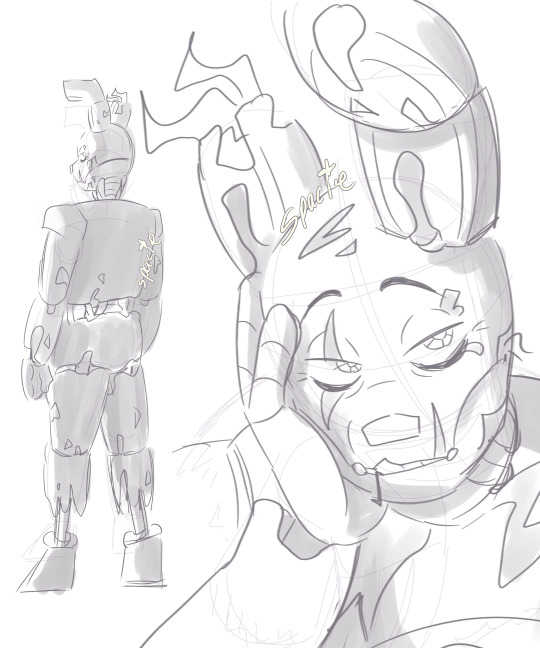
i dunno i never draw him from the back so i did that
#also i rarely ever follow the guidlines i set for mysELFKSHFAJKSFHAJSKFHJKSADF HELP#fnaf#five nights at freddy's#springtrap#springtrap fnaf#spacie scribbles#william afton#purple guy#i also never draw hoim with ankle guts but i did this time#he ties his weird guts inta a bow#its like tying your sneakers in the morning#ya dothe loopdie loop and pull and your (ankles) are lookin cool :]#posts this and goes 2 sleep#SORRY TA THE PERSON THAT DMED ME I SAW THAT AS SOON AS I CLOSED DISCORD BUT IM SLEEPY#need eep...
1K notes
·
View notes
Text
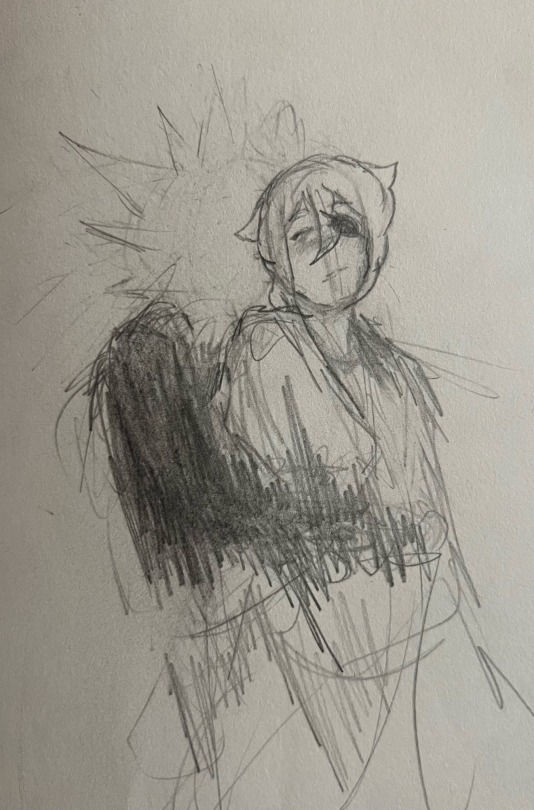
Doodle! ☺️
#sifloop#isat#siffrin isat#loop isat#siffrin is wearing a different outfit and has his hair tied back in this#should i start posting more sifloop doodles...#eregos
93 notes
·
View notes
Note
*sigh* thoughts on Nintendo's botw/totk timeline shenanigans and tomfoolery?
tbh. my maybe-unpopular opinion is that the timeline is only important when a game's place on the timeline seriously informs the way their narrative progresses. the problem is that before botw we almost NEVER got games where it didn't matter. it matters for skyward sword because it's the beginning, and it matters for tp/ww/alttp (and their respective sequels) because the choices the hero of time makes explicitly inform the narrative of those games in one way or another. it matters which timeline we're in for those games because these cycles we're seeing are close enough to oot's cycle that they're still feeling the effects of his choices. botw, however, takes place at minimum 10 thousand years after oot, so its place on the timeline actually functionally means nothing. botw is completely divorced from the hero of time & his story, so what he does is a nonissue in the context of botw link and zelda's story. thus, which timeline botw happens in is a nonissue. honestly I kind of liked the idea that it happened in all of them. i think there's a cool idea of inevitability that can be played with there. but the point is that the timeline exists to enhance and fill in the lore of games that need it, and botw/totk don't really need it because the devs finally realized they could make a game without the hero of time in it.
#i really do have a love-hate relationship with this timeline#because it's FASCINATING lore. genuinely. and i think it carries over the themes of certain games REALLY well#but i also think it's indicative of a trend in loz's writing that has REALLY annoyed me for a long time#which is this intense need to cling to oot#and on a certain level i get it. that was your most successful game probably ever. and it was an AMAZING game.#and i think there's definitely some corporate profit maximization tied up in this too--oot was an insane commercial success therefore you'r#not allowed to make new games we need you to just remake oot forever and ever#and that really annoys me because it makes certain games feel disjointed at best and barely-coherent at worst.#i think the best zelda games on the market are the ones where the devs were allowed to really push what they were working with#oot. majora. botw. hell i'd even put minish cap in there#these are games that don't quite follow what was the standard zelda gameplay at their time of release. they were experimental in some way#whether that be with graphics or puzzle mechanics or open-world or the gameplay premise in its entirety. there's something NEW there#and because the devs of those games were given that level of freedom the gameplay really enforces the narrative. everything feels complete#and designed to work together. as opposed to gameplay that feels disjointed or fights against story beats. you know??#so I think that the willingness to allow botw and totk to exist independently from the timeline is good at the very least from a developmen#standpoint because it implies a willingness to. stop making shitty oot remakes and let developers do something interesting.#and yes i do very much fear that the next 20 years of zelda will be shitty BOTW remakes now#in which botw link appears and undergoes the most insane character assassination youve ever seen in your life#but im trying to be optimistic here. if botw/totk can exist outside the timeline then we may no longer be stuck in the remake death loop#and i'm taking eow as a good sign (so far) that we're out of the death loop!! because that game looks NOTHING like botw or oot.#fingers crossed!!#anyway sorry for the game dev rant but tldr timeline good except when it's bad#asks#zelda analysis
169 notes
·
View notes
Text

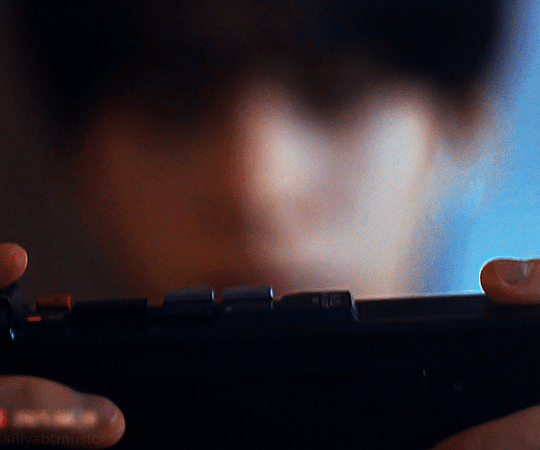
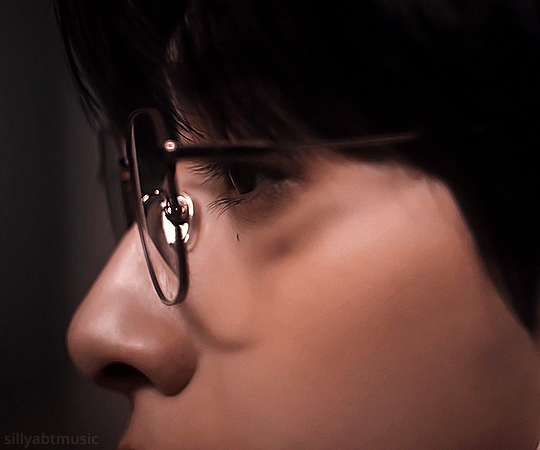


Camellia - Xion
#oneus#xion#son dongju#foroneus#kflops#malegroupsnet#lucieblr#teresabunnies#rhitag#sophiesee#cheytermelon#foraddy#* my gifs#nkd.gif#oneus.gif#oneus.xn#highllyyyyy pretty song and mv i think it's my tied for my second favorite solo i've already ranked them#1. radar (hwanwoong) 2. hatchling (seoho) / camellia (xion) 3. i just want love (keonhee) -wall- 4. sun goes down (leedo)#i do love how different in vibe all the solos have been it's pretty awesome. bouncing off the walls excited for hwanwoong mv#and also an official audio of it LOL ive been using a cleaned up concert audio to loop it. phenomenal and insane song
56 notes
·
View notes
Text
i have an itch to write about girldad kaiser
#i cant imagine him with a son im ngl#i think he'd just be way too antsy with him; afraid that he'll look at him and see his younger self#i don't think he'd necessarily repeat the cycle#but i do believe he'd be emotionally detached from him#as an twisted act of love to keep his son safe from him. to keep him safe from what he endured if ever the case history loops itself#but with a daughter? very different; still antsy but i think dad instincts kick in more with her. shes his trophy his little angel#wants to nurture her so she becomes like you while protecting her from the world#i do not want children at ALL legit getting my tubes tied once im 30 but i do fondly think of domesticity with my favs a lot#blue lock#bllk#michael kaiser#♡ ; alice's tea party#queueriosity
52 notes
·
View notes
Text

So does anybody else ever think about how Loop felt the need to demonstrate that the party's deaths wouldn't have any effect on the loops. I know I do but that's besides the point. Anyway I don't think Loop actually needs to bathe, they just like to feel included.
#'but lucabyte didnt you already do a comic with this exact same message? that loop has potentially killed their party intentionally before?'#yes i did absolutely do that thank you for noticing. that is what the cannibalism comic is about. no that was not a metaphor. lol#isat#in stars and time#isat spoilers#in stars and time spoilers#sifloop#isat siffrin#isat loop#in stars and time fanart#isat fanart#lucabyteart#ill ramble elsewhere some other time. maybe in a text post. but. long and short of it: even if you assume the answer to 'how do they know'#is that in sasasap isa got frozen once. theres still the fact that the loops are from sif being too distressed. how far gone does a siffrin#have to be before they can witness a party member die and notice it has no effect. how does loop feel to have planned to kill the party#during act 3. why did they NEED to show sif that. are they trying to preemtively stop them from getting the idea in their head#that maybe that might work? when they're out of all other options? when they just get so frustrated and at wits end?#loop helps in subtle ways through the whole game. and in less subtle ways like begging sif not to use the dagger. and while yes the#overarching reason you need to learn that the loops are tied to sif is because you need to figure out wish craft.... loop doesn't know the#actual mechanics of the loops themselves. just what didn't work. the power of friendship. getting the final hit in. being perfect. etc...#and besides all that.. how did loop feel during that hangout. being so deceitful. especially since before the other shoe drops#sif is enjoying themselves. but they know what's coming the whole time.#as for: why bathing? its the obvious imagery for blood on their hands/washing/never being clean. and is a bit of an inversion of the other#piece i just drew with the other casual closeness and nudity being kind. this one is cruel instead.#anyway tag ramble over ill do a masterpost of all my fanwork with some directors commentary sometime i promise. since i know im often vague
988 notes
·
View notes
Text
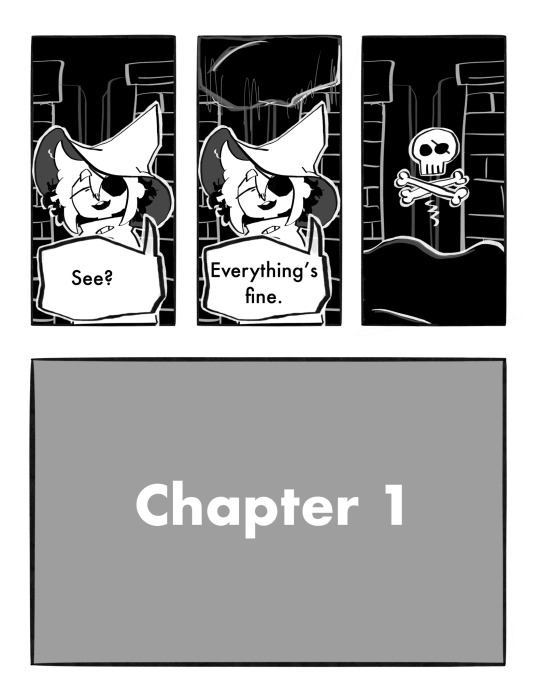
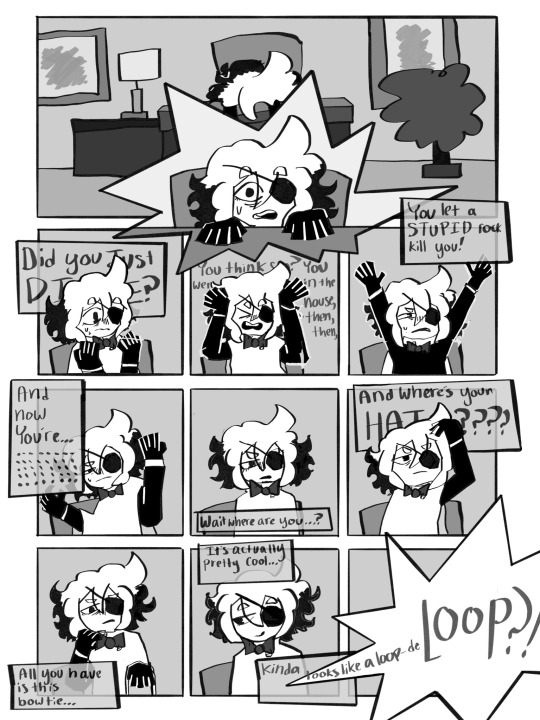
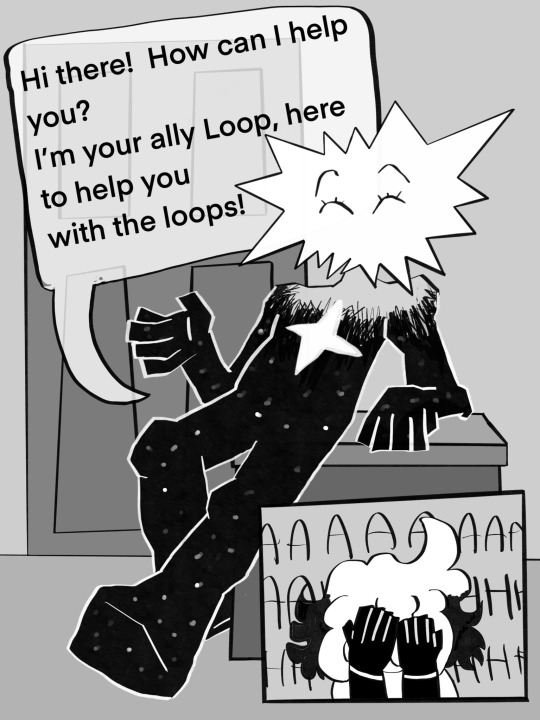
This is my In Stars and Time Good Place AU! Basically when Siffrin first dies to the rock in the death corridor instead of looping back to the meadow they appear in an office. In this au Siffrin takes the place of Michael, and Loop takes the place of Janet (bc like Janet Loop is also forced to help people out). When the rest of the party dies in the house or from freezing or whatever happens if Siffrin isn’t there then they all appear in the Good Place as well. Siffrin wouldn’t want to torture his friends - so instead what they do is they try to make “the perfect” world for his party. Like Michael, Siffrin organizes activities and things to do to help their friends, but as time goes on the rest of them start to figure out that something’s wrong. Every time this happens, Siffrin “reboots/resets” or “loops” them and they start back in the welcome room. Shenanigans ensue, and the rest of the party continues to figure out something is wrong and Siffrin and Loop have to deal with that. I’m not sure how it ends yet - but I do have a lot of ideas!
#in stars and time#isat#isat Siffrin#isat Loop#in stars and time siffrin#in stars and time loop#Siffrin#Loop#the good place au#isat good place au#my art#isat au#comics#in stars and time spoilers#isat spoilers#I wanted to combine my two favorite time-loop medias#which includes my favorite sitcom ever and this amazing game#I’ll be posting more for this too!#also. also. the bow tie is held up by siffrin’s pins :)#I also love bow ties I think they’re the coolest
134 notes
·
View notes
Text
and I love you so much, I’m going to let you kill me
~
A little edit in honour of me destroying the relationship between these two in my fic
#like i’ve said before on this blog i don’t ship rapple#but their weird toxic codependent friendship has enraptured me from the get go#they never match each others freak but that’s the point and it’s wonderful#ever after high#eah#rapple#< tagging cause this technically is a rapple edit and i love their shippers regardless of my personal beliefs#raven queen#apple white#eah edit#idk something about relationships so fundamental to the narrative that the story would fall apart without them#something something these two never once agreeing and that being their downfall but also what ties them together#and you have to wonder if their mothers felt something similar when they were young#if raven could have ended like her mother if she had gone through with signing the book the first time and the story would play out#in a loop forever#but she broke the cycle and might have actually saved her friendship w apple by doing so#idk i think abt it a lot#writing these two has been… an experience
63 notes
·
View notes
Text
Day 1 of writing ultrakill: hehehe machine powered by blood!! Mankind is dead, gabriel wants to fuck that machine
Day ???? Of writing ultrakill: hell is alive. Hell is alive and we are the entertainment, marked by blood as the fuel. The terminals watch us: for they and we are ultimately what’s left of humanity. They are an archive of everything mankind has ever achieved and one of its last remaining idols. There is nothing left to consume but yourself. The loop will endlessly repeat until either entropy- or yourself finally, mercifully ends it. You and Gabriel are tools now without purpose and now you must find it. Through Gabriel are you able to reach peak performance, the penultimate version of yourself. Through V1 Gabriel is able to achieve a form of deliverance- ecstasy through a newfound freedom. This is a wretched, bloodied love story that’s alive with every player as its intestines and entrails- eating itself whole. By killing each other- you will destroy everything you have left. You must break the loop today or the loop will repeat tomorrow. Gabriel really wants to fuck that machine and V1 wants that angel BADLY
#brace yourself im having another ultrakill thought#I think loops and cannibalism are vastly undervalued when it comes to ultrakill’s story#cannibalism in the way that V1 is consuming what’s left of itself- its own purpose to fight fueled by itself fueled by itself and so on.#which again ties into the theme of cycles#Gabriel in the way that the council had essentially ‘eaten’ one of their own whole at the slightest sign of imperfection#and yet Gabriel is able to break a clear cycle#just as V1 is able to break hell out of its dying cycle of eternal punishment by just killing#am I. am I making sense#can you tell I fucking love the violence layer#also throw in something about lust renaissance / greed insurrections attempting (and succeeding in a way) to break the cycle of torment#ultrakill#rose talks#for my next trick I will write terminal X V1 completely unironically#analysis
80 notes
·
View notes
Text
My appearance headcanon for Loop is that their body has the texture of a Minecraft end gateway block: A window directly to the void. The stars aren't a pattern on the surface of their body; their body is just three-dimensional emptiness, and the Universe is visible through it, so if they moved around you'd see different pieces of the night sky. Unfortunately this is nigh-impossible to convey in drawings
#loop isat#isat headcanon#it's like how the King's wish made the stars visible in the day over the House of Change#but concentrated on their body#also ties into how in my mind they're a 'glitched object'
21 notes
·
View notes
Text
#coucou coco!#i open wuwa -> i continue my daily grind to farm sss tier echoes for him -> they r all poopy butthole -> i :C -> i feel immense guilt for#wasting my time like this -> i watch his convene animations on loop to waste even more time (but tis a good waste of time) bcos then ->#i c: very big C: pah.#xiangli! yao!!!!!!!!!!!!!!!!!!!!!!!!!!!!!!!!!#(´。• ᵕ •。`) ♡♡♡♡#(´;ω;`)#。゚( ゚இ‸இ゚)゚。#gosh he is such a comforting character... he is trying his best ;;;; so we must tooooo!
21 notes
·
View notes
Text
Anon wrote: I am an ESTP, 17y. Even though I consider myself as an ESTP, I’m confused by certain aspects of my thought process that I associate with Fi. More specifically, I’m puzzled by my emotional reactions to certain things, which are quite hard to describe — I don’t fully understand their causes or nature.
I suppose it’s worth mentioning that, in terms of moral development, I’m at a stage where I try to maintain the approval of others. I believe this stems from emotional insecurity or, more precisely, a sense of inadequacy, which I attribute to my upbringing: I was a spoiled child, as my parents did everything for me and, as a result, failed to instill independence and a strong work ethic.
After comparing myself to others, I concluded that I lagged behind my peers in terms of emotional development and maturity. By this, I mean that I was somewhat aggressive (I infer this from the emotional harm I caused to some friends), stubborn, attention-seeking, and had a sense of superiority — I wanted to be better than others. I was also somewhat cowardly and, therefore, overly accommodating in social situations (because I didn’t know how to behave properly and was afraid of embarrassing myself).
I tried to correct these traits by aligning myself with public morality and seeking others’ approval. However, here lies a paradox: I was attempting to grow, but my motivation was the desire to be better than others, so every approval I received became proof of my superiority. In this sense, I equated intelligence with maturity, and thus viewed approval as evidence of my intellect. Later, I began to recognize this paradox, though I didn’t try to resolve it — I simply accepted it as a given, even though I worried that it might make my judgment biased or unreliable.
Why am I telling this? Because I believe it contributes to the “strangeness” of my thought process. I experience odd emotional reactions — physically unpleasant, strangely enough — when I see people doing things purely for profit or acting in a shallow, insincere way. I suppose the closest word for this feeling is resentment.
Why do I associate this with my moral development? I believe these reactions stem from my efforts to follow societal values and norms, which leads me to judge others based on those standards. However, this judgment feels automatic and involuntary — not something derived from conscious reasoning.
So, I wonder: are these reactions simply ingrained social values, or could they be better explained by the Fi function? In other words, might Fi drive me to maintain alignment between my behavior and personal identity, values, and preferences — such that insincerity or dehumanizing behavior triggers emotional resistance?
--------------------
You've described your thought process well enough that I understand the patterns. I don't believe any of it points to Fi, though I get why you would consider the possibility. There is actually a very distinct absence of Fi all along the way, from childhood until now. Realistically, there's no way auxiliary Fi would arise so suddenly and so late, even if you were to experience a huge life-changing event (which you haven't).
Even when people aren't very subjectively aware of their auxiliary function due to delayed development, from an objective observer's vantage point, evidence of the function will still appear to permeate judgment and decision-making. But there is no such underlying evidence of Fi in your case. There is for Ti, though.
A lot of people suffer from self-esteem issues, so it isn't specifically a personality type problem. However, type tends to make an appearance in how people choose to respond to low self-esteem, which is one factor I often examine when assessing type.
A common response to low self-esteem is compensation:
Compensation is a defense mechanism whereby a person attempts, usually unconsciously, to address a perceived weakness, flaw, or deficiency by "growing" in a way that serves to mask their insecurity about it.
Overcompensation happens when people strive too hard for a sense of superiority in one facet of life in order to cover up a sense of inferiority in some other facet.
By my understanding, compensation is a reaction to low self-esteem (feeling bad about yourself) and overcompensation extends beyond self-esteem into low self-worth (not feeling "good enough", e.g., to deserve acceptance and love).
In order to possess the self-confidence necessary to succeed in life, one needs to build up life skills, skills that help one meet challenges and adapt appropriately to changing circumstances. Life challenges and circumstances are quite diverse, so life skills are also quite diverse. To give you a bigger picture view of life skills and why they require lifelong commitment to improve, they include things such as:
analytical skills
caregiving skills
civic literacy skills
communication skills
community building skills
conflict resolution skills
creative thinking skills
decision making skills
diet management skills
emotional regulation skills
financial literacy skills
home maintenance skills
housekeeping skills
leadership skills
media literacy skills
networking skills
organization skills
planning skills
problem solving skills
productivity skills
relationship skills
research skills
self-care skills
self-directed learning skills
self-expression skills
stress management skills
teamwork skills
technological skills
time management skills
Why is over/compensation unhealthy? Mainly because it is a distraction that doesn't address the real underlying problem. Using your case as an example, you felt inadequate due to the fact that your upbringing didn't prepare you to succeed in life on your own. What your parents did is not your fault, but now you have a problem to deal with. How should one respond to this problem? Logically, one ought to pick up the knowledge and skills that one missed out on learning earlier in life as soon as possible. Doing this would gradually boost independence and self-esteem in a healthy way.
Many people don't know that throughout the history of psychology, "intelligence" has always been a controversial concept and very difficult to define properly. In the most basic terms, intelligence is the ability to learn new concepts in a timely manner and apply them effectively. From this perspective, increasing your skillfulness through learning and improving life skills is a legitimate expression of intelligence. A truly intelligent person is humble, in that they know what they don't know and then work to fill in the gaps appropriately. The notion of superiority/inferiority never enters the picture.
The "intelligence" you speak of doesn't seem to bear any resemblance to the above, does it? For some reason, you linked the concept of intelligence to social approval and feelings of superiority. Social perception and subjective feelings are not reliable measures, are they? Social perception changes with the times. For example, what was once socially acceptable becomes socially unacceptable a mere ten years later. Feelings can be fleeting and are not always an accurate representation of reality. For example, today you feel great because you got a good night's sleep, but tomorrow you feel terrible because you ate a bad dinner the night before.
When you stake your personal identity on murky things such as social perception and subjective feelings, don't be surprised that your existence eventually becomes very unstable. Mental instability creates phenomena such as intrusive thoughts, weirdly intense feelings, and inexplicable mood swings. And then a lot of mental energy gets wasted trying to manage instability, energy that could otherwise be spent on learning and growth.
To put it bluntly, you were creating an illusion of intelligence based on appearances rather than expressing genuine intelligence, unconsciously believing that compensation would cure low self-esteem. But relying on other people's validation to feel good about yourself is a problem because it puts you forever in the position of a passive victim, always at the mercy of external opinions, always reacting from behind. Is it possible to become a truly independent person by taking this path? Quite the opposite, taking this path is the road to perpetual dependency and, thus, chronic low self-esteem.
When people engage in over/compensation, they're not actually addressing the most pressing skill deficits (long-term solution) but, rather, merely trying to alleviate negative feelings such as shame or resentment (short-term bandaid). Best-case outcome is that their skills never improve and personal growth stagnates. Worst-case outcome is they pick up bad habits that increase the chances of mistakes and failures in life, such as putting ever more energy into keeping up appearances and neglecting actual growth.
While you were correct to emphasize the notion of intelligence, and your desire to grow in that direction came from a good place, the method you chose was ultimately unhealthy and could even become self-destructive. Basically, you calculated wrong because you didn't know any better, and I hope that my answering this question for you helps you to know a bit better. For what it's worth, the particular method of compensation you chose for responding to low self-esteem is consistent with tertiary Fe loop patterns that result from underdeveloped auxiliary Ti.
At this point in your life, you are almost an adult, so the call to independence is at its loudest. You have a choice to make: Are you going to choose the right means to become a truly capable and independent adult? Or are you going to keep relying on childish tricks and games to fool yourself into thinking you're smarter than you really are? If you keep choosing the latter, your life will eventually be dominated by fear of being exposed as a fraud or imposter.
If you're going to keep relying on what you call "public morality", you're going to keep running into uncomfortable contradiction after uncomfortable contradiction. Why? Because the elevation of public morality as the ultimate moral standard is problematic. Public morality is a fuzzy and transitory concept, so it cannot be any kind "ultimate" standard. However, public morality does have legitimate usefulness in terms of societal cohesion and advancement, so it should not be entirely dismissed, either. The issue is whether you eventually have enough intelligence to apply the concept more appropriately.
These disturbing "feelings" you're describing are related to the emergence of your own personal moral conscience, which is a vital step in moral development for all people. Moral development is a separate matter from type development, though they intersect at times. Becoming an adult should include developing an independent moral point-of-view, otherwise, you will always be easily tricked and manipulated by external forces.
And when personal values and public morality collide, what are you going to do? You need critical thinking skills to work out the conflict in the best way, which should be part and parcel of Ti development. If you are anything like other ESTPs, your line of inquiry is heading in the wrong direction towards Fi perhaps because you are unconsciously trying to shirk the responsibility of thinking more deeply on such matters? If you did think deeply, it would seriously interfere with the old Fe loop compensation strategy, and then life would become much more complicated and threaten you with Ni horrors?
Deep down, auxiliary Ti is trying to inform you that not every public moral stance is correct, reasonable, or defensible. The reason you're starting to see a problem out there is because it reflects a problem inside you, with your way of thinking that you just copied from the outside. Essentially, Ti is the voice that tells you when your thought process is stupid and in need of correction. It urges you to probe a little deeper and develop a more independent, critical, skillful, nuanced, sophisticated, substantive, and well-reasoned way of understanding issues and tackling problems. Will you listen to it?
#estp#auxiliary ti#fe loop#morality#moral development#intelligence#life skills#self esteem#self worth#compensation#overcompensation#independence#ask
21 notes
·
View notes